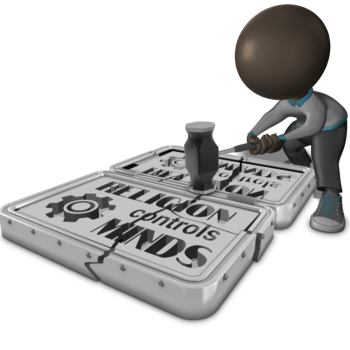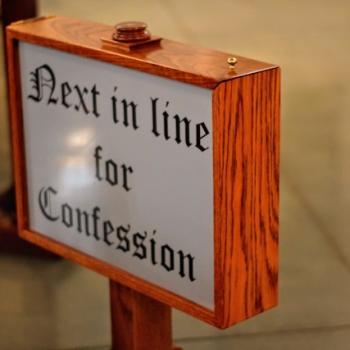This week's Torah portion, Lech Lecha, enters the life of Abraham when he is already eighty-five. When we first meet him, God tells him to "lech lecha," to go from his home to a land that God will show him, eventually.
What was Abraham doing on this earth for the first eighty-five years? There are dozens of stories in the Midrash that fill in the blanks left by the Torah text. In the first Midrash on Abraham, he lived in a time and a place of idolatry, but as a young child, managed to think his way from idolatry to monotheism. In the beginning, for Abraham, there were no burning bushes or Divine voices—just his mind and the solitude of a cave.
At the age of three Abraham was deserted in a cave. When he came out and walked about he thought, "Who created the heavens and the earth?" When the sun broke forth and stars disappeared he said, "I will not worship these for they are not gods." When the sun rose he said, "I will praise her." But again the sun set and he said, "The sun is not god, and seeing the moon, he called her to be his god. But when the moon was hidden from view he said, "This, too, is not god." There is only one who set this in motion. (As told by Samuel Tobias Lechs in Humanism in Talmud and Torah).
A different version of this story replaces the stars, sun and moon with fire and water. The message, however, remains. Monotheism can be established by the unencumbered soul through observation and Abraham was open to observing God in the world, despite cultural conditioning to the contrary. The Midrash is suggesting that anyone could have played Abraham's role. Abraham's revolutionary idea is his idea and not the product of revelation. Revelation will come to him and his decedents—but only after God is already discovered.
The Midrash reverses the chronology of the text. In the Torah, Abraham's first encounter with God is not one of individual discovery, but Divine revelation and blessing. The text does not tell us why Abraham is selected for this magnificent blessing. We know nothing of his past and his character.
I will make you a great nation; I will bless you, and make your name great, and you shall be a blessing. I will bless those who bless you and him who curses you, I will curse; and the families of the earth shall bless themselves by you. (Genesis 12: 2-4)
The Torah chooses Abraham to be the recipient of God's blessing, but the Midrash chooses God to be the discovery of Abraham's mind. By withholding the backstory on Abraham, including clues to his character, the Torah preserves our ability to tell Abraham's story. In the act of telling his story, we are forced to ask, "Did God choose him or did he choose God?" And to answer this question differently, each time.
Because I do not relate the Midrash's idea that monotheism is self-evident, but I love the free will implicit in Abraham choosing God, I struggle with imagining a backstory for Abraham that honors both. How can free will be maintained if Abraham can only discover God through revelation? Perhaps he discovered God when he met a wondrously spiritual woman who lived in priestly community of women experimenting with monotheism. Abraham fell in love with Sarah, and she taught him about God.
What backstory will you tell?
11/1/2011 4:00:00 AM





